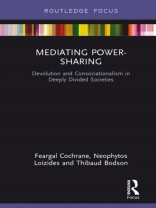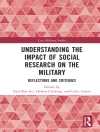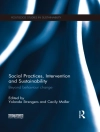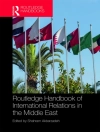This book focuses on the design and operation of power-sharing in deeply divided societies. Beyond this starting point, it seeks to examine the different ways in which consociational institutions emerge from negotiations and peace settlements across three counter-intuitive cases — post-Brexit referendum Northern Ireland, the Brussels Capital Region and Cyprus. Across each of the chapters, the analysis assesses how the design or mediation of these various forms of power-sharing demonstrate similarity, difference and complexity in how consociationalism has been conceived of and operated within each of these contexts. Finally, a key objective of the book is to explore and evaluate how ideas surrounding power-sharing have evolved and changed incrementally within each of the empirical contexts. The unifying argument within the book is that power-sharing has to have the capacity to adapt to changing political circumstances, and that this can be achieved through the interplay of formal and informal micro-level refinements to these institutions and the procedures that govern them, that allow such institutions to evolve over time in ways that increase their utility as conflict transformation governance structures for deeply divided societies. This book fills the gap in the published literature between theoretical and empirical studies of power-sharing, and will be of much interest to students of peace and conflict studies, consociationalism, European politics and IR in general.
Thibaud Bodson & Feargal Cochrane
Mediating Power-Sharing [EPUB ebook]
Devolution and Consociationalism in Deeply Divided Societies
Mediating Power-Sharing [EPUB ebook]
Devolution and Consociationalism in Deeply Divided Societies
Купите эту электронную книгу и получите еще одну БЕСПЛАТНО!
язык английский ● Формат EPUB ● страницы 134 ● ISBN 9781351250542 ● издатель Taylor and Francis ● опубликованный 2018 ● Загружаемые 3 раз ● валюта EUR ● Код товара 5590633 ● Защита от копирования Adobe DRM
Требуется устройство для чтения электронных книг с поддержкой DRM












